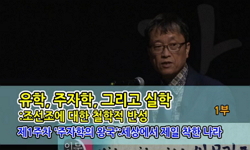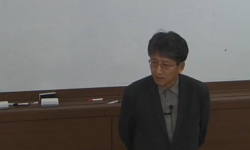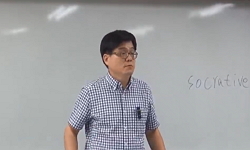The description of Choi Han-gi in the first part of the History of Joseon Philosophy, published in North Korea in 1960, triggered research in South Korean academia. Since then, North Korea has continued to describe and systematize the history of Joseo...
http://chineseinput.net/에서 pinyin(병음)방식으로 중국어를 변환할 수 있습니다.
변환된 중국어를 복사하여 사용하시면 됩니다.
- 中文 을 입력하시려면 zhongwen을 입력하시고 space를누르시면됩니다.
- 北京 을 입력하시려면 beijing을 입력하시고 space를 누르시면 됩니다.

북한의 최한기 철학 독법과 한계 - ‘조선철학사’ 서술의 변화와 특징을 중심으로 - = North Korea’s Readings and Limits of Choi Han-ki’s Philosophy : Focusing on the Changes and Characteristics of the ‘History of Joseon Philosophy’ Narrative
한글로보기부가정보
다국어 초록 (Multilingual Abstract)
The description of Choi Han-gi in the first part of the History of Joseon Philosophy, published in North Korea in 1960, triggered research in South Korean academia. Since then, North Korea has continued to describe and systematize the history of Joseon philosophy for about 10 years, while South Korea's description of the history of Korean philosophy has been suspended since 1987. However, South Korean research on Choi Han-gi has fallen short of its achievements in terms of the diversity of characters and themes, such as the foundation work of canonization. This is because the basic premise of the history of philosophy and the systemic ideology of the struggle between idealism and materialism became the shackles of Choi Han-gi's reading. The history of Joseon philosophy based on Marxism-Leninism has become a tool for the succession of national cultural heritage and class education, with the Juche ideology(主體思想) systematized in the mid-1970s as its program, and the basic tone of historicism and classism strengthened in the 1980s. According to the worldview struggle, the genealogy of medieval materialist philosophy from Seo Gyeongdeok(徐敬德) to Choi Han-gi was made, and the historical limitations of Choi Han-gi's thought were highlighted according to the class struggle.
Choi Han-gi's research focused on epistemology centered on Gicheukcheui(氣測體義), and the concentration of data is also a problem, such as citing only part of Injeong(人政) when dealing with social and political thoughts. In addition to Ki monotheism, the progressiveness of Choi Han-gi's philosophical thought was highlighted in Daedong Thought(大同思想), atheism, and the theory of foundation, which can be found in studies related to Silhak(實學). The representative researcher is Jeong Seong-cheol, who participated in the first history of Joseon philosophy, and follow-up studies are usually within the scope of Jeong Seong-cheol's research.
In the 2000s, North Korea continued to describe the history of philosophy, while introducing Choi Han-gi as a major figure in the history of Joseon philosophy by translating and introducing Singitong(神氣通) in the university textbook, Collection of Joseon Philosophy History. Choi Han-gi can be a clue to the point of contact between North and South Korean academic exchanges and the direction of the narrative of the history of Korean philosophy.
동일학술지(권/호) 다른 논문
-
조선 위인과 위인 전기의 기원 -개벽사의 조선 위인 투표와 "조선지위인(朝鮮之偉人)"(1922)을 중심으로-
- 계명대학교 한국학연구원
- 김도경
- 2023
- KCI등재
-
문집의 누적성과 상징 구축 연구 – 김종후 편 청풍세고 를 중심으로
- 계명대학교 한국학연구원
- 백승호
- 2023
- KCI등재
-
- 계명대학교 한국학연구원
- 윤병용
- 2023
- KCI등재
-
한국이민사박물관에서의 젠더 재현에 관한 논의 : 한인 사진신부의 사례를 중심으로
- 계명대학교 한국학연구원
- 노선희
- 2023
- KCI등재





 KCI
KCI DBpia
DBpia







